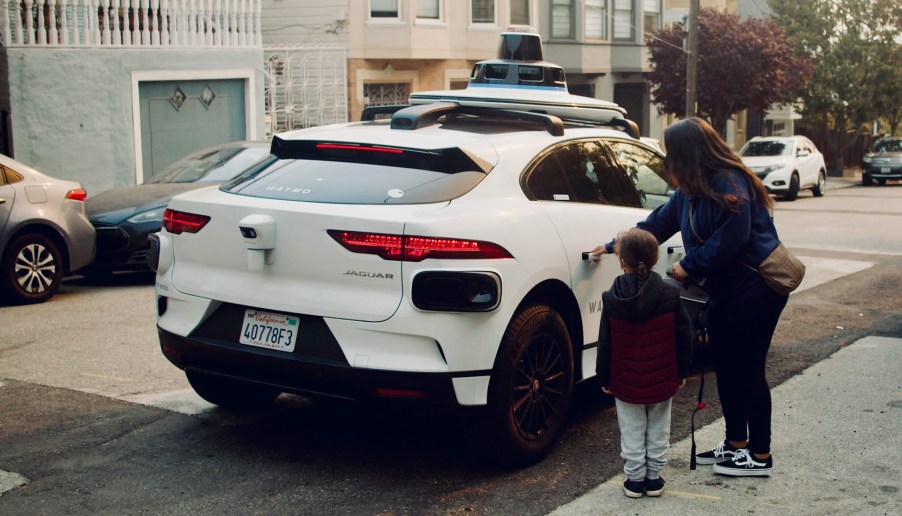
DMV Approves Commercial Autonomous Vehicles
Autonomous vehicles are in lockstep with the progression of electric vehicles. As more manufacturers promise that they will make all of their future vehicles electric, third-party companies are working to convert EVs to autonomous vehicles. While it is true that a car does not need to be electric to incorporate self-driving technology, it is the most efficient way to go when considering the broader picture.
Two parties are interested in autonomous vehicles. The first is the automakers who want to add self-driving tech to their cars as a selling point for consumers. The second are third-party companies that are looking at the commercialization of autonomous vehicles for ride-hailing services.
Imagine using an app to request a ride that can automatically drive to your location, pick you up, take you to your destination, all without a driver. Now imagine that instead of that vehicle needing to be manually fueled up when it is out of gas, it can drive itself to a charging station where it can be wirelessly charged automatically. The last part of that hypothetical situation makes EVs especially attractive to tech companies looking to commercialize autonomous vehicles.
Two firms just reached a significant milestone toward that goal.
Waymo and Cruise approved to use autonomous vehicles for commercial service

The California Department of Motor Vehicles (DMV) announced that they have granted permits to tech firms Cruise and Waymo to use their fleet of autonomous vehicles for commercial use. This is a massive step toward the future of autonomous vehicle ride-hailing services. Waymo, Cruise, and similar companies have only had permits to test their autonomous vehicles on public roads until this point.
According to the DMV, a test permit limits the amount of compensation that a company can earn for using their autonomous vehicles on public roads. This new permit grants Waymo and Cruise more latitude when earning revenue from their self-driving cars, but there are still significant limitations.
When it comes to Cruise, the permit only grants them to use their Chevy Bolt autonomous vehicles for commercial use within designated parts of San Francisco between the hours of 10 p.m. and 6 a.m. at a maximum speed limit of 30 miles per hour and can operate in light rain and light fog.
Waymo has a bit more flexibility. Waymo can operate its fleet, which includes Jaguar I-PACE SUVs in designated areas of San Francisco and San Mateo counties on public roads up to speeds of 65 mph, and can also operate in rain and light fog.
Cruise has had a test permit for California since 2014, while Waymo got approved for testing in 2015; both of those early test permits required a safety driver. Cruise received a driverless test permit in 2020, while Waymo received its driverless test permit in 2018.
Smartphone maker Apple also has a permit to test autonomous vehicles in California, which further fuels rumors that there will be an “Apple car” sometime in the near future.
What is required to earn a commercial autonomous vehicle permit from the DMV?

As you might imagine, it takes a lot more than paying some fees for a company to be granted permission to operate autonomous vehicles on public roads commercially. The DMV wants to make sure any company operating self-driving vehicles for profit adheres to a strict set of regulations and requirements in the interest of safety.
To receive a “deployment” permit, self-driving firms must meet several conditions. A firm must identify the operational design domain of the vehicles and describe any commonly occurring restricted conditions within which the cars would not be able to operate.
The self-driving company must also verify the technology it is using is capable of detecting and responding to roadway situations in compliance with the California Vehicle Code and a description of how the vehicle meets the definition of an SAE Level 3, 4, or 5 autonomous technology.
Those requirements are just some of the conditions that must be met. There are other stipulations like providing a way for law enforcement to interact with its autonomous vehicles and having insurance or a bond equal to 5 million dollars.
It will be quite some time before autonomous ride-hailing vehicles are in widespread use across the nation but the permits granted to Cruise and Waymo by the DMV brings the world one step closer to that day.


